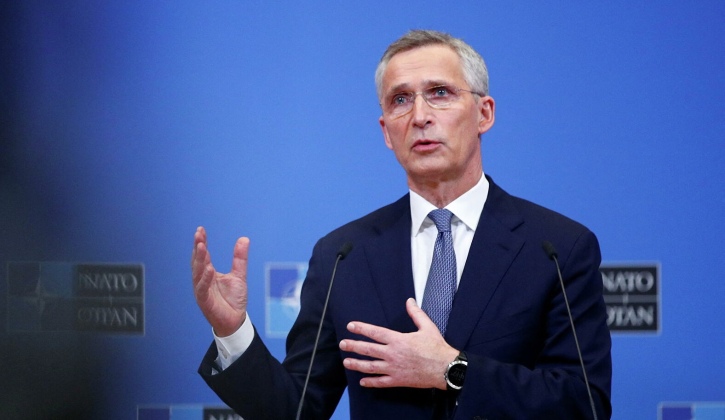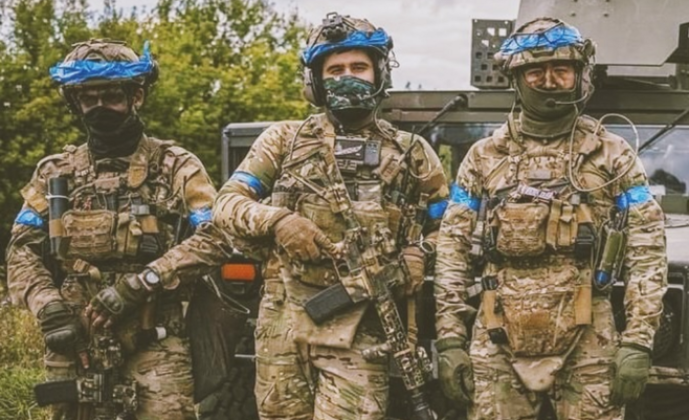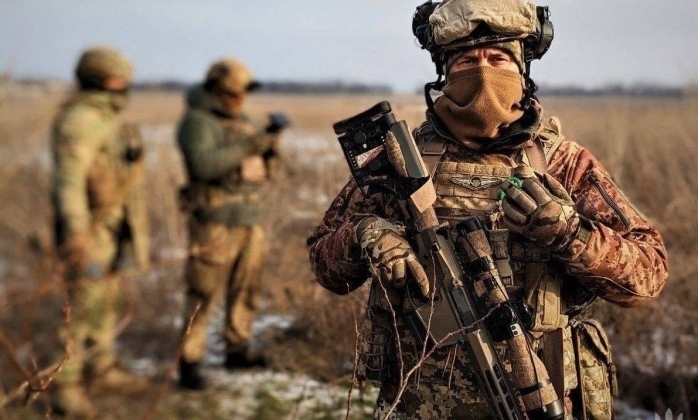News
NATO Chief (ret) Confirms the West Won’t Fight Russia For Ukraine: Are Boots on the Ground Ruled Out?
Former NATO Secretary General Jens Stoltenberg has confirmed that the Western Bloc states will not sent forces to Ukraine, as it would cause an unacceptable risk of open conflict with Russia. He recalled that after the escalation of hostilities between Russia and Ukraine to full scale war in February 2022, NATO members made two key decisions during a meeting in Brussels. “One was to step up our support for Ukraine, as we did. The other was to do what we could to prevent this war from escalating beyond Ukraine and become a full-scale war between Russia and NATO,” he said. Then U.S. President Joe Biden stated at the time that “we will not risk a third world war for Ukraine.”

Stoltenberg made clear that Ukrainian President Volodymyr Zelensky also understood this. “He called me from a bunker in Kiev… and he said: ‘I accept you are not sending in NATO ground troops, though I disagree. But please close the airspace,’” the former secretary general recalled. Stoltenberg said he denied the request to impose a no fly zone, which would have required Western Bloc fighter aircraft to directly engage the Russian Aerospace Forces. He added it had been “extremely painful” to deny Ukrainian requests, noting that although there was an “element of contradiction” when NATO stated it wanted Kiev to prevail, but refused to deploy its own ground forces, this was nevertheless the “the right approach.” He concluded by calling for a further escalation of arms supplies to Ukraine.

Stoltenberg’s statement follows a revelation by the chair of the NATO Military Committee Admiral Rob Bauer that Russia’s nuclear arsenal was the central factor distinguishing it from the Western Bloc adversaries, without which NATO members would have launched an attack. “I am absolutely sure if the Russians did not have nuclear weapons, we would have been in Ukraine, kicking them out,” he stated. Beyond arms supplies, however, countries across the Western world have made significant deployments of personnel and contractors to support the Ukrainain war effort. These have ranged from British Royal Marines deployed who began frontline combat operations from April 2022 at the latest, to contractor groups such as the Polish Volunteer Corps and American Forward Observation Group who have played major roles in hostilities across multiple theatres.

Although the United States has remained more cautious regarding the possibility of escalation, European states have been more willing to increase direct miltiary involvement, and played a leading role in lobbying Washington to increase arms supplies. French President Emmanuel Macron has on multiple occasions stated that greater deployments of ground forces in Ukraine are not ruled out as part of a policy to “do everything necessary to prevent Russia from winning this war,” with the French government having begun considering options for major ground force deployments to Ukraine from June 2023. Calls for such options to be considered have been raised by figures such as Estonian Prime Minister Kaja Kallas, Polish Foreign Minister Radoslaw Sikorski, Lithuanian Foreign Minister Gabrielius Landsbergis, and Finnish Foreign Minister Elina Valtonen, among others. Most recently in late October French Land Forces Commander General Pierre Schill pledged that the country will be ready to deploy ground forces in Ukraine in 2026 if required. Such calls are expected to intensify as Ukrainian forces continue to take unsustainable losses on the frontlines.












